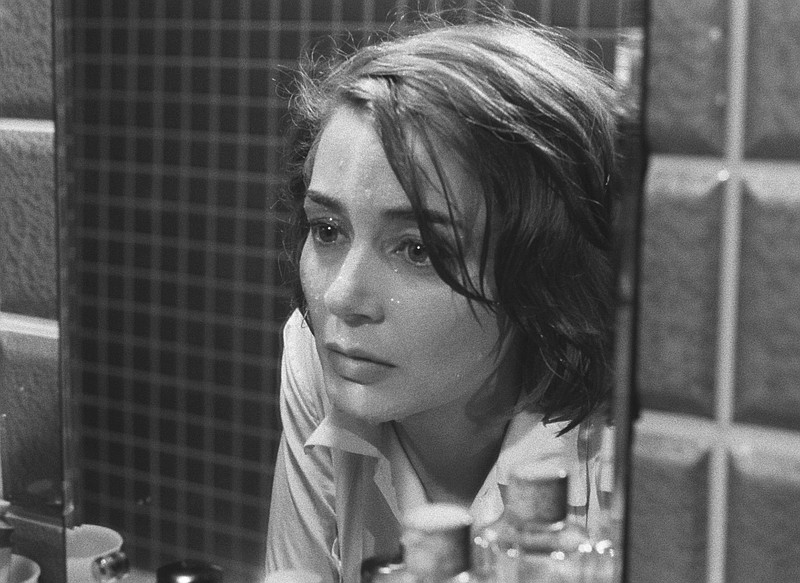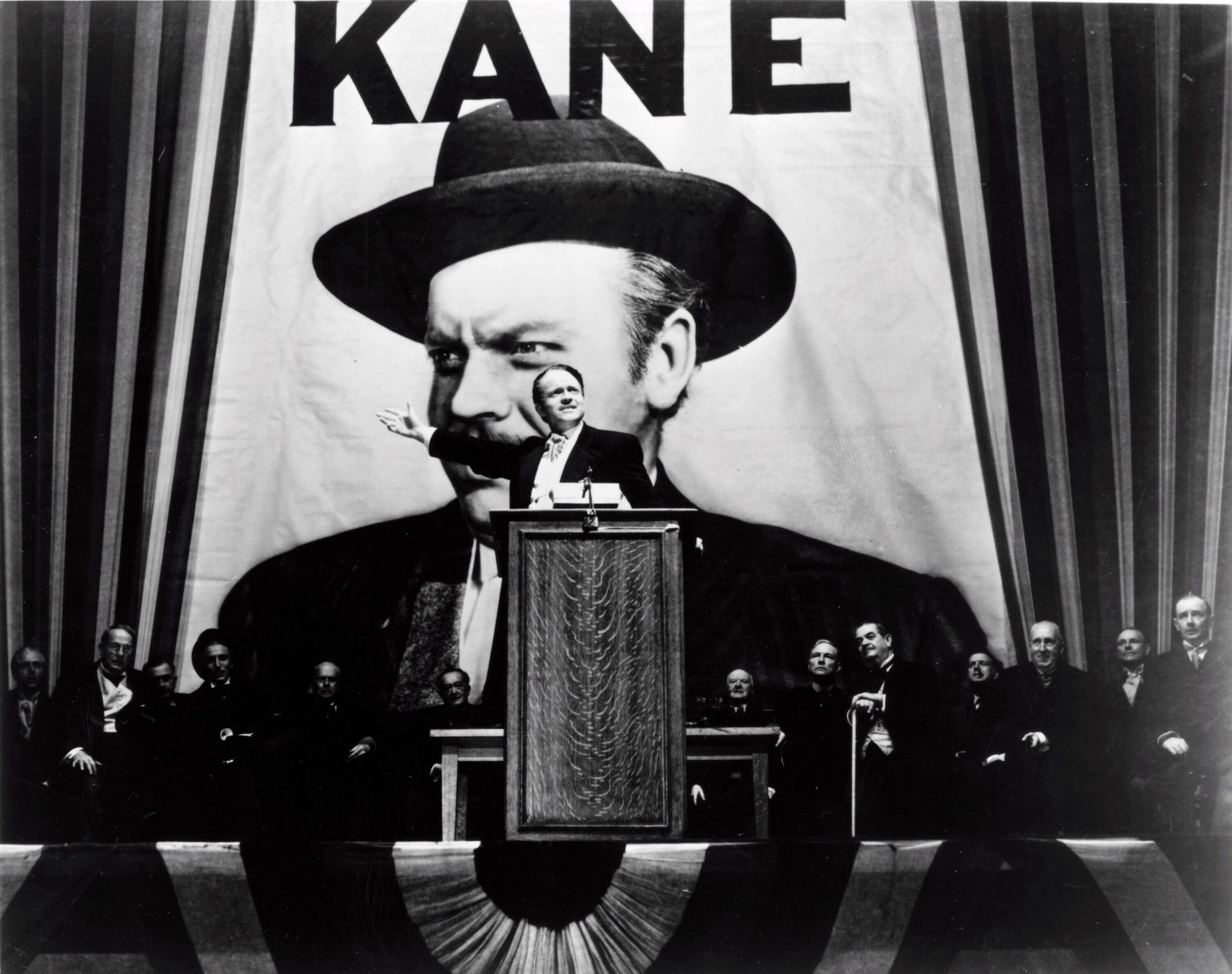Over the past few years that I've been following him on Facebook, writer-director Paul Schrader (2017's "First Reformed," 1976's "Taxi Driver") has developed into one of my favorite writers on film. He is a deeply serious man with a sense of humor who holds strong opinions and often trenchantly dissects films in a few sentences.
His review of "Licorice Pizza" was the best I've read: "It's tempting to see the film through the prism of a bildungsroman, imagining Gary Valentine (Cooper Hoffman) will grow up to be a hip and sophisticated man like Paul Thomas Anderson. But given the evidence of the film, Gary will be every inch the a**hole at 30 that he is at 15. Or worse -- he'll be a celebrity a**hole the likes of Jon Peters and Bill Holden.")
In a recent Facebook post, he revised his all-time Top 10 movie list:
1. "Persona" (Ingmar Bergman, 1966) 2. "Tokyo Story" (Yasujiro Ozu, 1953) 3. "Pickpocket" (Robert Bresson, 1959) 4. "Vertigo" (Alfred Hitchcock, 1958) 5. "The Rules of the Game" (Jean Renoir, 1939) 6. "The Wild Bunch" (Sam Peckinpah, 1969) 7. "The Lady Eve" (Preston Sturges, 1941) 8. "The Conformist" (Bernardo Bertolucci, 1970) 9. "In the Mood for Love" (Kar-Wai Wong, 2000) 10. "Hud" (Martin Ritt, 1963)
Schrader wrote: "I think the time has come to let 'Citizen Kane' go. It is, after all, the granddaddy of all-time best film lists. But I'm replacing it with 'The Conformist.' Both are seminal masterpieces which changed the arc of cinema. 'The Conformist' just means more to me. 'Hud' replaces both 'The Searchers' and 'Performance.'"
I doubt Schrader takes the ranking-of-movies business any more seriously than I do. Art is not a competition. Lists are tinder for conversation. They are fun to read and maybe they give us a kind of map of another's taste. It's like rifling through someone else's record collection or scanning their bookshelves. And when one needs to create content in the late January horse latitudes of the movie release calendar they are valuable. So I thought I might go back and revise my list of my favorite movies of all time.
But a funny thing happened when I went to the archives to search for past columns about my all-time favorite movies: I was surprised I haven't touched on the subject more than a couple of times over the years. Given how often I've been asked to vote on the all-time "best" movies in internet polls, I would have thought I'd have dragged out a Top 10 list every other year. But no, I have been remarkably restrained, if I do say so myself.
In 1997, I polled various members of our staff about their favorite movies, then offered my own Top 5:
1. "Hiroshima Mon Amour" (Alain Resnais, 1959)
2. "The Rules of the Game" (Jean Renoir, 1939)
3. "Citizen Kane" (Orson Welles, 1941)
4. "The Searchers" (John Ford, 1956)
5. "Raging Bull" (Martin Scorsese, 1980)
But before I finished that column, I felt like revising the list. Francis Ford Coppola's "The Godfather" (1972) belonged on it; as did Charles Laughton's "Night of the Hunter" from 1955. Maybe "Blade Runner" (Ridley Scott, 1982). "The Third Man" (Carol Reed, 1949) and "Touch of Evil" (Welles again, 1958). "Bonnie and Clyde" (Arthur Penn, 1967).
Looking back at the list -- what amounts to a Top 11 -- from a distance of 25 years, it feels pretty safe and predictable. ("Chalky" is a word the sports gambling guys would use to describe it.) "Hiroshima Mon Amour" might be a fairly eccentric No. 1, but all these films are considered important and everyone who writes seriously about film might be expected to be familiar with them. Still, I honestly love all these movies, and all of them were important to the development of my critical faculty and taste.
In 2003, I took a different approach; I listed the movies that had the most impact on me as someone who thinks and writes about the movies -- which isn't precisely the same thing as my favorite movies. "Hiroshima Mon Amour" and "The Searchers" topped this list, followed by "Platoon" (Oliver Stone, 1986), the first film I ever wrote about for publication.
"Night of the Hunter" was next, and then I cheated, listing three films in my No. 5 slot -- "Bonnie and Clyde," "Taxi Driver" (Martin Scorsese, 1976), and "Apocalypse Now" (Francis Ford Coppola, 1979) because I saw them as "emblematic of the best of Hollywood during Hollywood's best era."
George Lucas' "Star Wars" (1977) was in the sixth spot, followed by Jean-Luc Godard's "Breathless" (1960) and Spike Lee's "Do the Right Thing" (1989). I cheated again with my No. 9 selection, choosing all four Matt Helm spy satires -- "The Silencers" (1966), "Murderers' Row" (1966), "The Ambushers" (1967) and "The Wrecking Crew" (1968) -- because I remember going to see them with my father (who otherwise had pretty good taste in movies).
My last selection was Martha Coolidge's "Valley Girl" (1983), a "teensploitation" movie I once almost wrote a book about. Had I proceeded with that project, I would have made the possibly spurious argument that this slight, loopy romance -- one of Nicolas Cage's first movies -- was one of the best films of that decade. I might still believe that.
I ended that column with the lamentation that I had left out "Citizen Kane."
Then in 2018, I wrote a column making the tentative argument that David Lynch's "Mulholland Drive" (2001) was perhaps the best film of the 21st century to that date. I also considered Hayao Miyazaki's "Spirited Away" (2001), the Coen brothers' "Inside Llewyn Davis" (2013), the Dardenne brothers' "L'Enfant" (2005) and Todd Haynes' "I'm Not There" (2007) as possible contenders. I don't know why I left Jonathan Glazer's "Under the Skin" (2013) or "In the Mood For Love" off that short list; I shouldn't have.
Since then I'd add Jane Campion's "The Power of the Dog" from last year, Chloe Zhao's "Nomadland" from 2020, Bong Joon Ho's "Parasite" (2019), Quentin Tarantino's "Once Upon a Time ... in Hollywood" (2019), Schrader's "First Reformed" (2017), Hirokazu Koreeda's "Shoplifters" (2018), and Alfonso Cuaron's "Roma" (2018) to my working list of the best of this century. But I'm not sure that any 21st-century film would make my personal list of favorites.
If I'm trying to construct a map of my taste as a reference for readers, it might be better if instead of listing individual movies, I come up with a list of favorite directors and pick two favorite films from them.
Or have people list their two favorite films by 25 (or 50 or 100) directors selected by a non-voting entity. For instance, I'd list "Punch-Drunk Love" (2002) and "There Will Be Blood" (2007) as my favorite P.T. Anderson films. My favorite Claire Denis films would be "White Material" (2009) and "Beau travail" (1999). Stanley Kubrick: "A Clockwork Orange" (1971), "Paths of Glory" (1957). Agnes Varda: "Vagabond" (1985), "Faces Places" (2017). The Coen Brothers: "Inside Llewyn Davis," "A Serious Man" (2009). Mike Leigh: "Naked" (1993), "Happy-Go-Lucky" (2008). Woody Allen: "Crimes and Misdemeanors," (1989) and, gulp, "Manhattan" (1979). Roman "yipes!" Polanski: "Chinatown" (1974), "The Tenant" (1976).
That might be more interesting than the usual Top 10 list.
I'm not going to cop out after teasing an updated list. But Schrader's revision of his Top 10 got me to think of the project in a slightly different way -- it's not which movies come closest to perfection, but what movies mean the most to me. I'm not sure that anything less than five years old or made before I was born can qualify under this criteria -- or at least it makes it easier to leave them off. So here's my new personal Top 10, in no particular order:
"The Godfather," "Bonnie and Clyde," "Naked," "Under the Skin," "Do the Right Thing," "Taxi Driver," "The Piano" (Jane Campion, 1993), "Spirited Away," "The Last Picture Show" (Peter Bogdanovich, 1971), and, yeah, a slight cheat, Krzysztof Kieslowski's Three Colors Trilogy: "Blue "(1993), "White" (1994), and "Red" (1994).
Maybe I'll come up with a template for the 25 (or 50) directors game in a future column.
Email:


